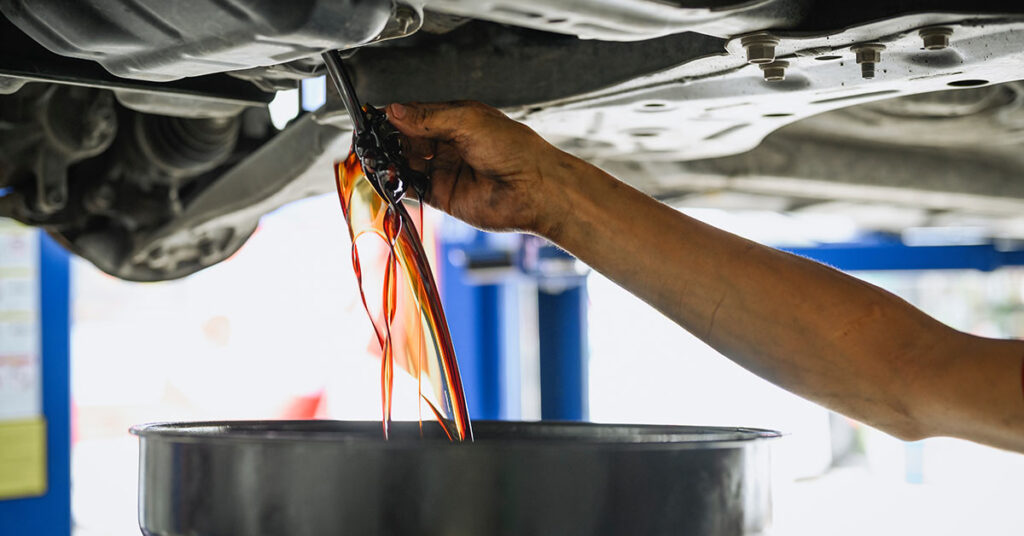
Changing a car’s oil is a routine process, but that doesn’t mean it isn’t crucial. Learn why changing your oil matters and how the process works.
Why Change You Need to Change Your Oil
Engine oil serves as the lifeblood of your car, lubricating its components to reduce friction and heat. Over time, however, oil breaks down and becomes contaminated with debris, ultimately causing it to lose its effectiveness.
Regular oil changes help with your car’s engine performance, fuel efficiency, and engine longevity. A well-lubricated engine performs better, doesn’t have to work as hard (which means better gas mileage), and protects against contaminants, extending the lifespan of your engine and potentially saving you from costly repairs in the long run.
The Oil Change Process
Draining the Old Oil
The first step is removing the old, used oil. This involves locating the oil drain plug on the bottom of the engine and letting the old oil flow out into a receptacle. Ensuring the engine is warm before the oil change makes the process more efficient and effective.
Replacing the Oil Filter
Simultaneously, the oil filter is replaced. The oil filter is responsible for trapping contaminants and preventing them from circulating through the engine. A new, clean filter ensures that the fresh oil remains free of debris.
Inspecting Other Components
A comprehensive oil change often includes a quick inspection of other essential components. Technicians may check the air filter, inspect the transmission fluid, and assess the vehicle for any potential issues.
Adding New Oil
Once the old oil has been drained and the new filter is in place, technicians add the appropriate type and quantity of fresh oil to the engine. Using the correct oil viscosity and grade is important — you can usually find what’s required in your vehicle’s owner’s manual.
Checking Oil Levels
After adding new oil, technicians check the oil levels to ensure they are within the recommended range. This step is essential for preventing overfilling or underfilling, both of which can have adverse effects on the engine.
Regular oil changes are not just a routine task — they are a vital investment in the longevity and reliability of your automobile. Schedule your oil change with Pearson Auto today.
